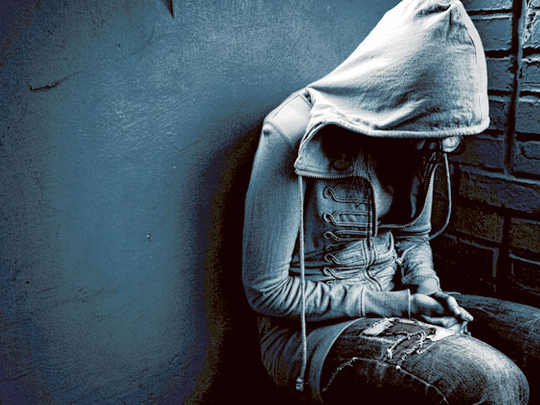
Dubai: Increasing social pressures may push vulnerable youngsters to the edge but caregivers can catch the signs early to help them overcome the situation, experts told Gulf News.
On the heels of three suspected teen suicides in the UAE for the first two months of the year, mental-health experts suggested caregivers, parents, and teachers to pay careful attention to the ways youngsters cope with stress and increased social expectations.
People’s mental resilience in coping with stress and social pressures vary. Others can handle even the toughest situation just fine, but there are those who can’t and develop mental issues in the long run if help is absent. The same is true with youngsters, but they are even more at risk because of their age.
“In adolescents, they are more impulsive and if they have underlying mental health issues like depression, anxiety, if they are continuously facing all these difficulties, sometimes a very small trigger can push them to the wall and they can make a wrong decision to kill themselves,” Dr Mohammad Tahir, a child and adolescent psychiatrist, told Gulf News.
“So, the point we are trying to make is, there is always an underlying issue [behind a suicide] because normally people can take a lot of stress,” he added.
A 2013 study by Dr Sami Mana Ahmad Bin Ahmad Ali, community medicine specialist registrar at Dubai Health Authority, revealed that about one in five school children in Dubai showed symptoms of depression. Out of 1,289 students surveyed, between the ages of 14 and 18, 17.5 per cent were diagnosed with advanced symptoms.
“For someone who is already at the edge, this is like the last straw on a camel’s back. The person is already having issues and difficulties, even the average level of the stress of the school, the home, or the social relationship can be harmful for people with underlying illnesses,” Dr Tahir stressed.
Increasing social expectations in a highly competitive environment like Dubai can be an added stressor to a vulnerable teen.
“Nowadays, children are highly stressed. And the social pressures are setting in even at a young age,” Dr Saliha Afridi, clinical psychologist and director of LightHouse Arabia in Dubai, told Gulf News.
On many occasions, youngsters have to juggle between schoolwork and extra-curricular activities such as music, sports classes, and other activities to become the best they can be in everything.
“Children are becoming ‘hyper-scheduled’, running from one activity to another. They’re losing the essence of childhood. They are engaging in more and more activities which may result in mental disturbances,” Dr Afridi said.
Having downtime when a child can relax and enjoy his or her childhood is crucial in living a well-balanced life. Providing the necessary support is also important.
“This city, town, country is very competitive. So, yes, the expectations are huge. But at the same time, when we expect more, we need to provide a social support system. We need to pay more attention to children and be available if needed,” Dr Tahir said.
While it is impossible to isolate the child from these stressors, there are other things caregivers can do to help the child cope better with the situation.
“We can treat the underlying mental illness and make the person much stronger and healthier so that they can take the stress and move on with life with a support system. The family, the school, counsellors, can talk to kids who are going through a rough or tough time.”










